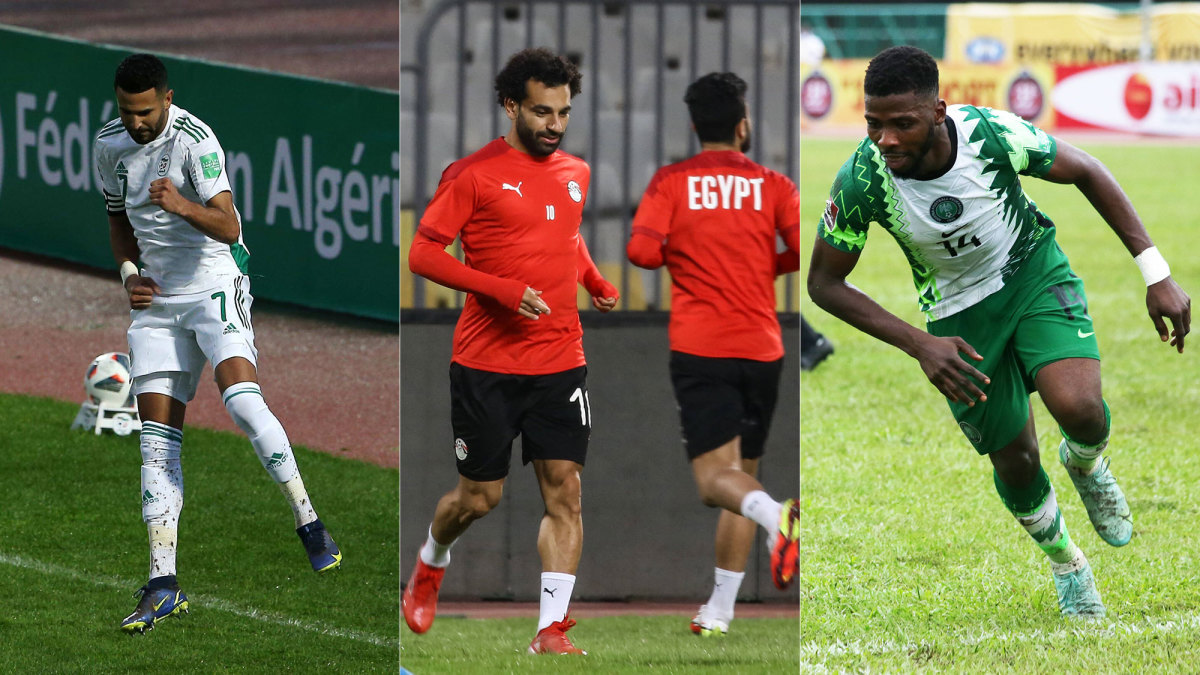Complications Surrounding Cup of Nations Underscore Africa's World Cup Ceiling

This isn’t how it was planned, but then the Africa Cup of Nations rarely goes as planned. Not since 2012, five tournaments ago, has the country initially slated to host the competition wound up doing so. This, the 33rd Cup of Nations that begins on Sunday as host Cameroon faces Burkina Faso, should have been in Ivory Coast last June. But political problems, worries about the rainy season and COVID-19 have delayed it so that, just as it used to be, the Cup of Nations takes place in a World Cup year.
It’s not quite as it was in 2010 and before, when every other Cup of Nations ended five months before the World Cup began, leading ultimately to the sense that Cup of Nations was devalued, essentially taking the role of a warm-up for the global tournament. Qatar hosting the World Cup in the fall means there will at least be 10 months between the Cup of Nations final and the start of the global tournament—for which the 10 sides still involved in African World Cup qualifying means thoughts will inevitably be turning to November.
There are then six months between the end of the World Cup and the start of the next Cup of Nations, which raises further questions about scheduling. For a long time, the Cup of Nations had been staged in January-February. Then, in 2017, three months after Ahmad Ahmad had won the presidential election against Issa Hayatou, who had been in power for 29 years, the Confederation of African Football (CAF) agreed to move the tournament to June-July as part of FIFA's wider rationalization of the calendar. There is an obvious problem, though, which is that the European summer is the West African rainy season.
That initially didn’t seem to concern anybody, and the issue was deferred when, in November 2018, it was decided to shift the 2019 tournament from Cameroon to Egypt because of concerns over infrastructure, the Boko Haram insurgency and the Anglophone conflict. Egypt in June and July is hot, but not impossibly so.
But then it was decided that the climate made it impossible for Cameroon, which had been given the 2021 tournament, to host in June-July and so it was moved back to January-February (before being delayed by a further 12 months because of COVID-19). But the 2023 tournament will be played in June-July in the Ivory Coast, even though average rainfall there is over 10 inches a day in June, more than double what was considered unacceptable in Cameroon.

All of this may seem like little more than bureaucratic details. But in them lie two key facts. The first is that Europe represents the motor of the modern game. The Champions League is both the best and the richest tournament in the world. The Premier League, Bundesliga, Serie A, La Liga and Ligue 1 represent the standard of football and the wages that the majority of the best players from all around the world aspire to earn. It’s where the cream of African talent, from Mohamed Salah to Kalidou Koulibaly, Riyad Mahrez to André-Frank Zambo Anguissa play. The last four World Cup champions have all been European, as have 13 of the last 16 World Cup semifinalists. Europe is the center of the football world. And that, unfortunately, means everywhere, everything and everyone else has to fit in around it.
Hayatou saw the Cup of Nations as being about self-assertion and was adamant it should keep its regular slot in the calendar. He was flawed as a president, but in arguing that Africa should not bend to European frustration with the calendar he was consistent. He also left CAF with reserves of $150 million. It is now so broke that its officials have not been paid for weeks and are having to pay for their own lunch and dinner in Cameroon. CAF never offered the greatest leadership, but it didn’t used to be in the mess it is now.
And those two factors hold back football across the continent. When Cameroon in 1990 became the first African side to reach the World Cup quarterfinals, the assumption was progress would continue. But in the past 30 years, only two further African sides have reached a quarterfinal—and for all that say Ghana was a Luis Suárez handball (or an Asamoah Gyan penalty miss) away from reaching the semifinals in 2010, it was also a handball not given in an earlier game between Serbia and Australia away from going out in the group. As Europe has used its position of power effectively to industrialize youth production, so too have the lack of resources and structure in Africa increased the gap between the continents.
Despite all of the logistical issues and some late COVID-19-related absences, there will be great players in Cameroon—Salah is arguably the most in-form star in the world at the moment—and quite possibly great football. Whether there is a side that can finally break through and reach the semifinals in Qatar, though, is a very different issue.
More Soccer Coverage:
